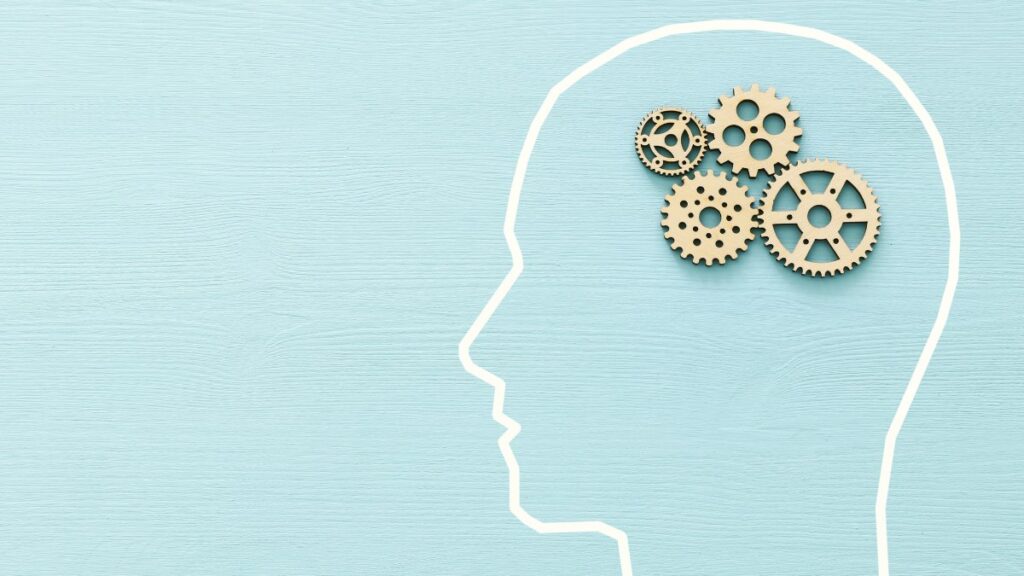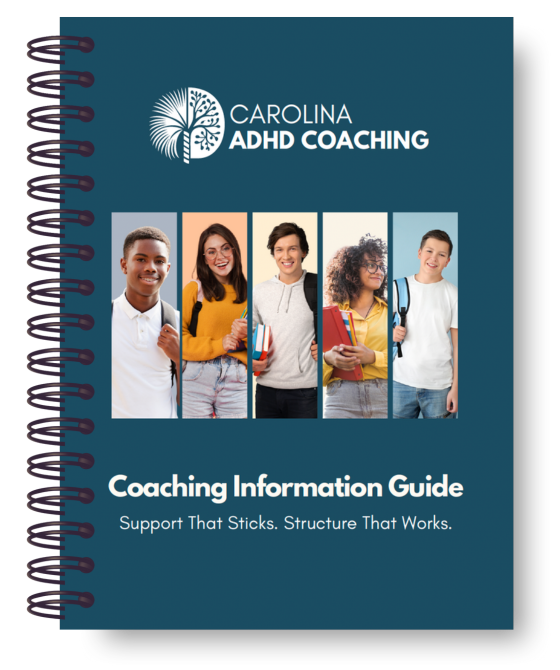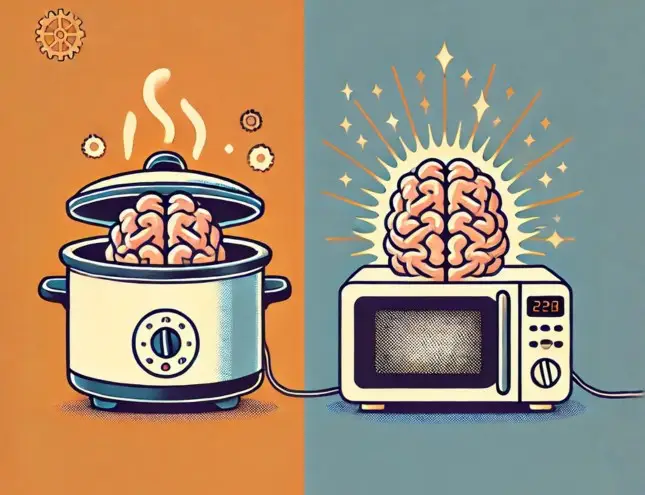Parent Perspective: My child isn’t doing what they need to do. I need to remind them — I just want to help them be successful.
Teen/Young Adult Perspective: Ahhh, why are you bothering me? I can do it myself!
Sound familiar?
While yes — some of this is your typical teenage pushback (we’ve all been there!) — there’s often more going on beneath the surface when ADHD or executive function challenges are in play.
For teens and young adults with ADHD, being told what to do can actually trigger a complex brain-based response — one that can make it even harder to get started or follow through, no matter how good the intentions on both sides.
Let’s take a closer look at why this happens — and how you can shift the dynamic at home.

Why It Happens
First, it’s not just that your teen is being lazy, defiant, or trying to push your buttons (even if it feels that way some days!). For teens and young adults with ADHD, being told what to do can trigger a very real brain-based reaction.
The ADHD brain craves autonomy, novelty, and interest — and often resists external control. Add in challenges with emotional regulation, rejection sensitivity, and task initiation, and suddenly even a simple reminder can feel overwhelming, irritating, or demotivating.
The result? A parent who’s trying to help… and a teen who feels cornered or shut down.
Here are a few reasons why this dynamic is so common — especially with ADHD:
- Brain science: The ADHD brain is wired for interest-driven motivation — not obligation-driven motivation. External demands (“You need to do this now”) can trigger an automatic resistance response because the task doesn’t feel internally rewarding or urgent.
- Emotional layer: Many teens with ADHD already carry shame or frustration about the things they struggle to do. A well-meaning reminder can unintentionally shine a spotlight on those struggles, triggering defensiveness or shutdown.
- Perceived control: Being told what to do can feel like a threat to autonomy — especially if the teen has already developed their own system (even if it’s not working yet). They may think, “I was going to do it my way — now you’ve ruined it.”
- Rejection sensitivity: Some teens with ADHD experience rejection sensitive dysphoria — making them hypersensitive to criticism or perceived judgment. A simple reminder may land as “You don’t believe I can handle this,” even if that wasn’t the parent’s intent.
How Parents Can Help
We’re not telling you not to remind your teen — of course you love them, and of course you want to help them be successful. That instinct is coming from a good place! The key is to shift how those reminders sound and feel, so they’re more likely to land — and less likely to trigger resistance.
Here are a few simple strategies to try:
- Collaborate when possible: Instead of giving a directive, try asking: “What’s your plan for finishing that assignment?” → this invites ownership.
- Offer choice: ADHD brains respond better to options. Even small choices can help: “Would you rather start with your math or your English homework?”
- Externalize the reminders: Using visual checklists, alarms, or calendar reminders can reduce the need for constant verbal prompting from parents — which lowers friction.
- Acknowledge effort: Instead of only pointing out what’s not done, catch them doing something right → “I noticed you got started without me reminding you — that’s great.” Positive reinforcement helps build momentum.
- Allow space for their system: Even if their system isn’t perfect, sometimes it’s worth letting them try it (with gentle support) → this helps build autonomy and reduces the “you don’t trust me” dynamic.

Final Thoughts
Sometimes, no matter how much love and patience you bring to the table, it helps to call in a third party — think of it like a “translator” between the ADHD brain and the daily demands of life.
Just like you might hire a coach to help with sports, music, or test prep, an executive function or ADHD coach can help bridge the gap between knowing what to do… and actually getting it done.
Coaching provides a neutral space where teens can learn skills, build confidence, and develop strategies — without the emotional weight that can come with parent reminders. It’s not about replacing your support — it’s about adding a teammate to help your teen thrive.

Get an inside look at how our coaching works, what to expect, and how to get started. It’s free — and packed with helpful info for parents and students!
Download the Guide


